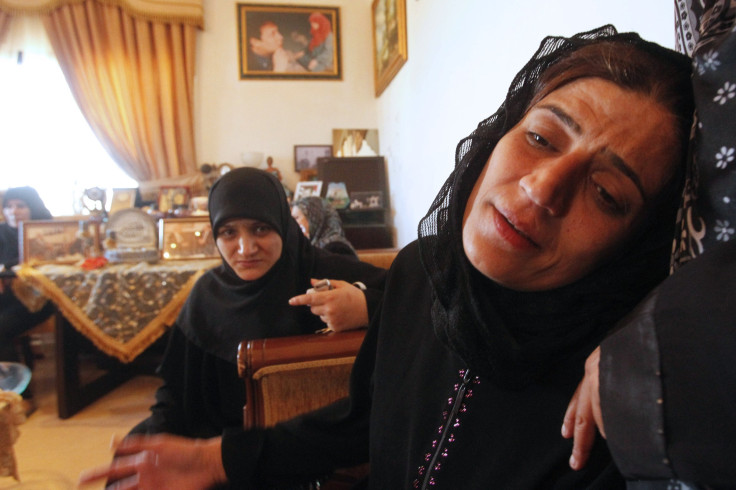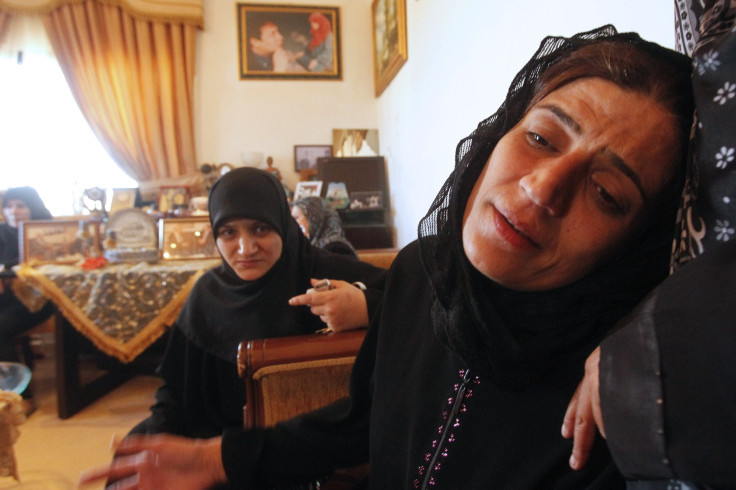Syrian Civil War: For Syrians Who've Taken Refuge In Lebanon - Empathy, Resentment And A Bit Of Schadenfreude


As Syrians continue to flee their country’s civil war, they are effectively overrunning the nearest haven -- neighboring Lebanon, where they now comprise almost one-fourth of the population, with thousands more arriving every day.
The influx has caused massive strains on the host country and growing resentment among the Lebanese, according to a survey published this month by a Norwegian research foundation.
The top concerns are economic pressures – unemployment, competition for business and downward pressure on wages as a result of Syrians’ willingness to work for very little -- and the potential for a spillover of the increasingly sectarian Syrian civil war. Lebanon already suffers from high unemployment, low wages and exorbitant housing costs, and the influx of refugees and expatriates has exacerbated all of those problems.
Added to that, there are political and cultural tensions, particularly given that Syria occupied much of Lebanon during and after its own civil war, from 1976 to 2005.
Estimates of the numbers of Syrians in Lebanon vary, but by any measure they’re staggering. Officially, the U.N. reports that there are currently 625,000 Syrians in Lebanon; the Lebanese government says there are 500,000 more who are not registered. Most fled the violence in Syria during more than two years of fighting, and there is no end in sight to either the conflict or the flow of refugees. The U.N. also estimates that 5,000 Syrians are killed every month and that an average of 6,000 flee the country every day. Such a scale of displacement has not been seen since Rwanda’s genocide 20 years ago.
For many of those fleeing, Lebanon offers a rare refuge, particularly because Egypt – another potentially attractive destination – has imposed strict visa requirements, severely limiting the number of Syrians who can go there. The U.N. reports that about 478,000 Syrians also have ended up in Jordan, 386,000 in Turkey, 158,000 in Iraq and 81,000 in Egypt.
According to the survey conducted by Fafo, an independent research foundation based in Norway, about 70 percent of the Lebanese population wants the U.N. to place Syrians in refugee camps. Almost all Lebanese surveyed told pollsters that in their view Syrians are taking away jobs and pushing down wages; about one in three Lebanese supported closing their border with Syria altogether.
Some of the survey’s findings reveal xenophobia and bigotry toward Syrians, especially among young Lebanese. Others reveal great empathy. Eighty percent of adult Lebanese under the age of 24 say they are uncomfortable sharing a meal with a Syrian or living in close proximity to one. Paradoxically, about 70 percent surveyed say they’re comfortable praying with a Syrian, and in some parts of Lebanon, such as Nabatieh in the south, locals have generously taken Syrian refugees into their homes.
A surreal incident in northern Lebanon recently highlighted the darker undercurrents when the hospital in the town of Menieh kicked out nearly 30 Syrian patients. Footage that surfaced online showed bandaged Syrian men stranded by the side of a road, some on crutches or in wheelchairs.
“We thank you for the reception you’ve shown us,” said an indignant worker from the charitable Office of Syrian Refugee Affairs, which was overseeing the patients’ affairs. He was apparently addressing the hospital administrators.
The details of the incident remain in dispute. The hospital says the patients were discharged for not paying their bills, and that all of them were healthy and ready to go home. The charity says it paid the bills on behalf of all patients, but that the hospital discharged them prematurely anyway, and added that some patients had their splints removed before injured bones had a chance to heal, and “some patients were not even allowed to collect their personal belongings before being kicked out.”
My own experience as a Syrian-American
I am myself a Syrian-American journalist based in Beirut, and while my job requires me to be objective, including about issues affecting Syrians, it is impossible to ignore the way my own day-to-day interactions are influenced by the complicated Lebanese-Syrian relations in play. I frequently benefit from Lebanese hospitality, but sometimes encounter overt schadenfreude over the misfortunes of my countrymen. When I first arrived in Beirut about a year ago, no bank would serve me.
The response I received over and over was, basically, “Sorry, we realize you want to open a checking account as a U.S. citizen, but you’re still of Syrian origin.” In one afternoon I visited six banks, all of which turned me down, citing international sanctions against Syrians. (Never mind that the sanctions target only certain individuals, or that as a U.S. citizen I am not subject to them.)
“Take it up with your treasury,” one bank manager said with a shrug, referring to the U.S. Treasury, which initiated many of the finance-related sanctions against Syria.
“We Lebanese suffered war for 15 years. Now it’s your turn,” said another manager.
In the end, a bank that hosts a freelance employers’ account agreed to open a checking account for me.
Then there are more subtle incidents, where it quickly becomes clear that my presence as a Syrian is not appreciated. Inside the posh ABC mall in Beirut’s predominantly Christian neighborhood of Achrafieh, I have noticed the turned faces when I’m in the company of other Syrians, and our audible conversation clearly carries our Syrian accent. This reaction is in stark contrast to when I shop in the company of Westerners and passersby think we are American or European.
I also occasionally encounter predictable commentary from urbanites oblivious to their own prejudices. “Oh, you’re Syrian?” they may ask with thinly disguised surprise, looking me up and down, as if no Syrian could possibly escape whatever stereotype they have in mind. “But you didn’t grow up there, right?”
And there are the polite and stoic neighbors who stand on their balconies and watch quietly as I get in or out of a car with Syrian license plates, and the otherwise gregarious waiters, bartenders and merchants who go stone cold the instant I utter a few accented words.
For many Lebanese, the Syrian accent triggers painful memories of the time before 2005, when Syrian troops ran amok in many parts of Lebanon, harassing Lebanese citizens at checkpoints, looting and destroying private property with impunity.
My personal subjectivity also makes me feel badly for the Lebanese. They were just starting to get it together after years of civil war and an anemic reconstruction phase when the influx of Syrians began. Syria is their 900-pound gorilla, and as much as many Lebanese want nothing to do with the war in Syria, there is no way for Lebanon to remain unaffected by the horrendous violence next door. Recently, Lebanon even became an active participant in the war when its Shi'a militia Hezbollah openly joined the fight alongside Syrian regime troops.
Sensitive Syrians, for their part, complain about their misfortune and what they perceive as a lack of reciprocity. Syria took in thousands of fleeing Lebanese during Lebanon’s civil war and as recently as 2006, when Israeli fighter jets pounded Lebanon.
“We placed them in our homes and in our hearts,” goes the usual Syrian complaint. “We’ve taken in everyone. The Palestinians. The Iraqis. We even allowed the Lebanese to work in Syria. But now that we need a safe haven, everyone turns their back on us.”
All of this is further complicated by the fact that many Lebanese are related by blood or marriage to Syrians. As one perplexed Westerner recently asked: “What’s the difference between Lebanese and Syrians anyway? They look and sound the same to me, and they eat the same food!” He later suggested, “Are they perhaps like Americans and Canadians?”
I told him it might require the combined intellectual prowess of anthropologists, political scientists and numerous shrinks to answer his question. All I know is that despite the bad and the ugly about life as a Syrian living in Lebanon, there is remarkable empathy and warmth. And I’m not just talking about my beautiful and supportive circle of Lebanese friends. I’m talking about the likes of one Beiruti taxi driver who almost moved me to tears recently. The instant he heard my Syrian accent, he gave a long sigh, his soulful brown eyes looking back at me in his rear view mirror.
“Over the years, I’ve been all over Syria as a traveler with my family,” he said. “To be honest, I wish I had never gone. I wish I had never grown to love Syria so much. Because at least now my heart would not be breaking into a hundred thousand pieces.”
© Copyright IBTimes 2025. All rights reserved.





















